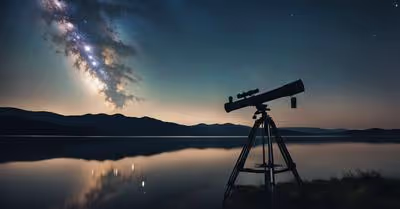
Key Takeaways
- Lakeside settings enhance stargazing experiences.
- Ideal spots offer clear views due to low light pollution.
- Access to expert guidance can enrich the stargazing adventure.
Stargazing by a tranquil lakeside—you can’t beat that for a peaceful night, right?
Imagine the stars' reflections shimmering on a still lake, nature's own mirror doubling the beauty above.
There's something magical about coupling the serenity of lakeside settings with the vastness of the night sky.
It's the perfect way to admire the cosmos and fulfill your curiosity about astronomy.
Did you know you can trust lakeside locations to offer some of the clearest views of the heavens?
This is thanks to minimal light pollution and wide horizons unobstructed by the usual urban sprawl.
Whether you're a seasoned astronomer or a casual stargazer, these spots provide an unparalleled opportunity to observe celestial wonders with your own eyes or through telescopes with local experts guiding you through the night sky.
Crater Lake National Park, Oregon
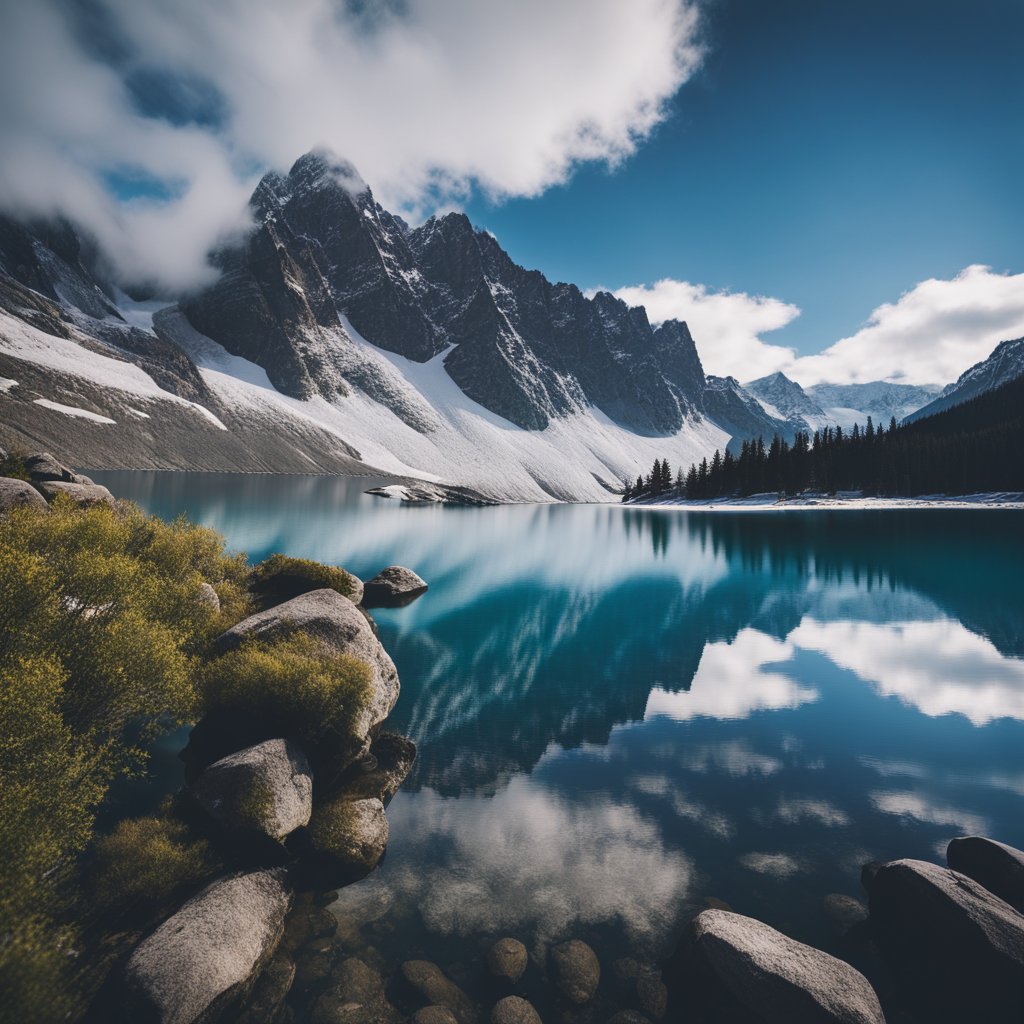
Have you ever seen stars reflecting on water so clear, it looks like a second sky?
Let me tell you about Crater Lake National Park, a secret gem tucked away in Oregon.
Sitting pretty at a high elevation of 7,000 feet, this park offers some of the darkest skies around—perfect for a night under the stars!
- Deep Blue Waters: The deepest lake in the US, can you believe it's 1,949 feet deep?
- Minimal Light Pollution: It’s like nature’s own blackout curtain!
- Summer Climate: Low humidity and cloud cover mean more stars for your viewing pleasure.
- Panoramic Views: With Rim Road, you’re in for a 33-mile treat of unobstructed skies.
So, you’re a stargazer?
Picture this: the vast Milky Way stretching from horizon to horizon and the water below mirroring this celestial display.
You won’t even need a flashlight; the stars are that bright.
Imagine setting up your telescope at one of the two developed campgrounds, Mazama or Lost Creek, and just losing yourself in the universe above.
But wait, there's more!
Summer brings clarity to the night sky, thanks to that dry High Cascade climate.
And with fewer trees around Rim Village, nothing’s going to block your view.
Got your star maps and hot cocoa ready?
Crater Lake is waiting to blow your mind with its out-of-this-world stargazing.
Don’t just add it to your bucket list—make it a priority!
Cherry Springs State Park, Pennsylvania
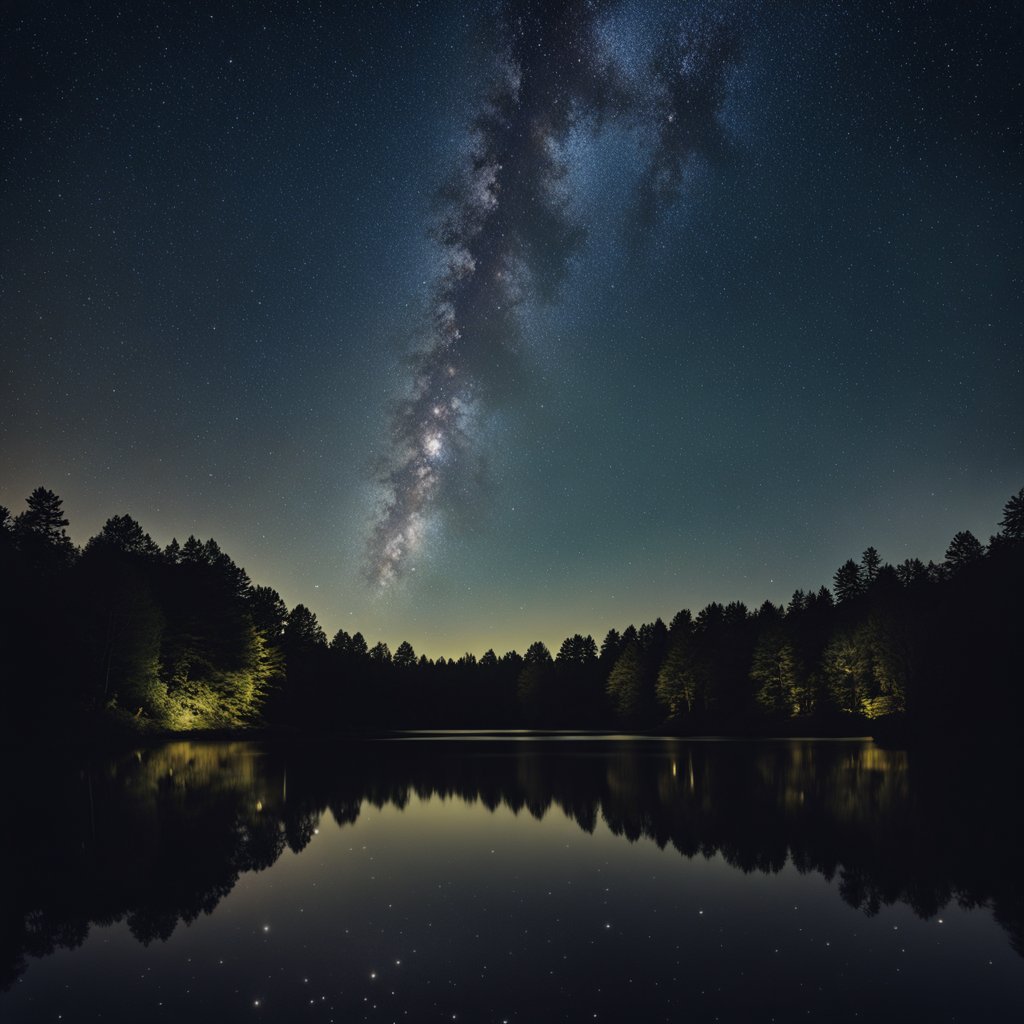
Ever gazed up at the night sky and felt like you could almost touch the stars?
Cherry Springs State Park is where stargazing dreams come true!
Nestled in Potter County, Pennsylvania, this 82-acre park is a stargazer’s paradise, famous for its incredibly dark skies—perfect for a night observing the heavens.
Why is it so special?
Well, it’s one of the few Dark Sky Parks around, which means less light pollution for your celestial viewing pleasure.
Imagine basking in the stillness beside a tranquil lake, as constellations and meteors unfold above you.
On good nights—there are about 60 to 85 of them annually—you could spot Venus, marvel at the Northern Lights, and even catch the Andromeda Galaxy’s distant glimmer.
Ready for a nocturnal adventure?
Here’s what you can do:
- Public Viewing Area: Hang out here for a few hours if you’re not planning an all-nighter. Don’t forget your red-tinted flashlight to keep your night vision sharp.
- Astronomy Field: Got more time? Set up camp here to spend the entire evening with the stars.
- Programs & Events: The park regularly offers astronomy programs, giving you a guided tour of the universe.
Remember, this isn't any ordinary park.
It's a slice of stargazing heaven that awaits your discovery.
Make sure to check the forecast for cloud cover and aim for those perfect conditions to make your visit truly unforgettable.
Grab a blanket, bring some hot cocoa, and let Cherry Springs dazzle you under its celestial canvas! 🌟
Big Bend National Park, Texas
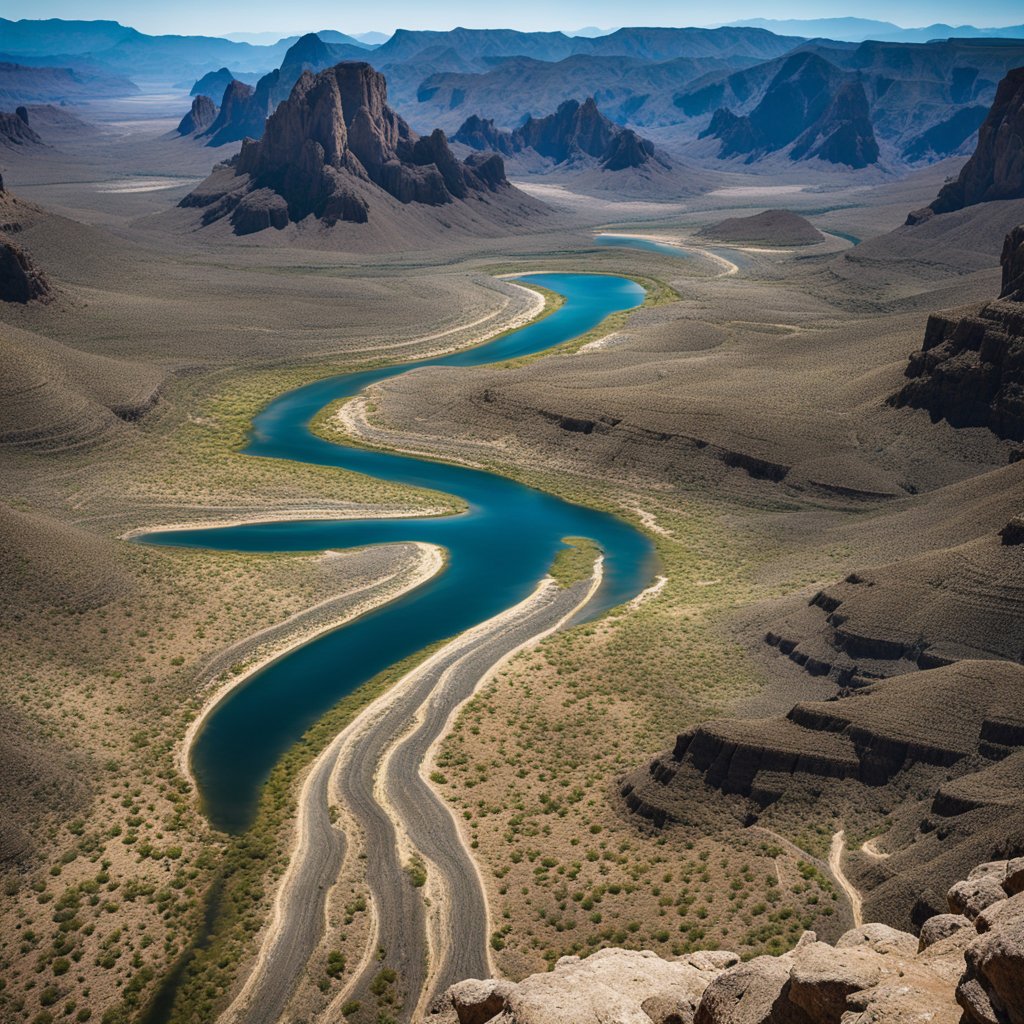
Have you ever wondered where you can see the stars in all their glory, free from the city's bright lights?
Look no further than Big Bend National Park in Texas.
Why is it such an amazing spot for stargazing, you ask?
Location, Location, Location: Nestled in southern Texas, Big Bend offers some of the darkest night skies in the lower 48 states.
Its remote positioning means fewer artificial lights to outshine the celestial show above.
Less Light, More Stars: Since Big Bend is far from large cities, light pollution is at a minimum.
The result?
Brilliantly bright constellations, and a clear view of the Milky Way that just might leave you breathless.
Here’s what you need to know for a stellar stargazing experience:
- What to Bring: Pack your telescope or a pair of binoculars to zoom in on distant galaxies, and make sure you have a comfy blanket or chair for those long nights under the stars.
- Getting There: If you're flying, aim for Midland (MAF) or El Paso (ELP) airports, and prepare for a beautiful drive to the park.
Remember, Big Bend is not only about stargazing.
By day, explore its rugged landscapes, and by night, watch as the skies transform into a glittering dome.
It's a bucket-list experience for you, the eager astronomer, or anyone who just loves to soak in the beauty of nature.
Perfect for a solo adventure or a memorable trip with your fellow star enthusiasts!
Happy stargazing! 🌟
Great Basin National Park, Nevada
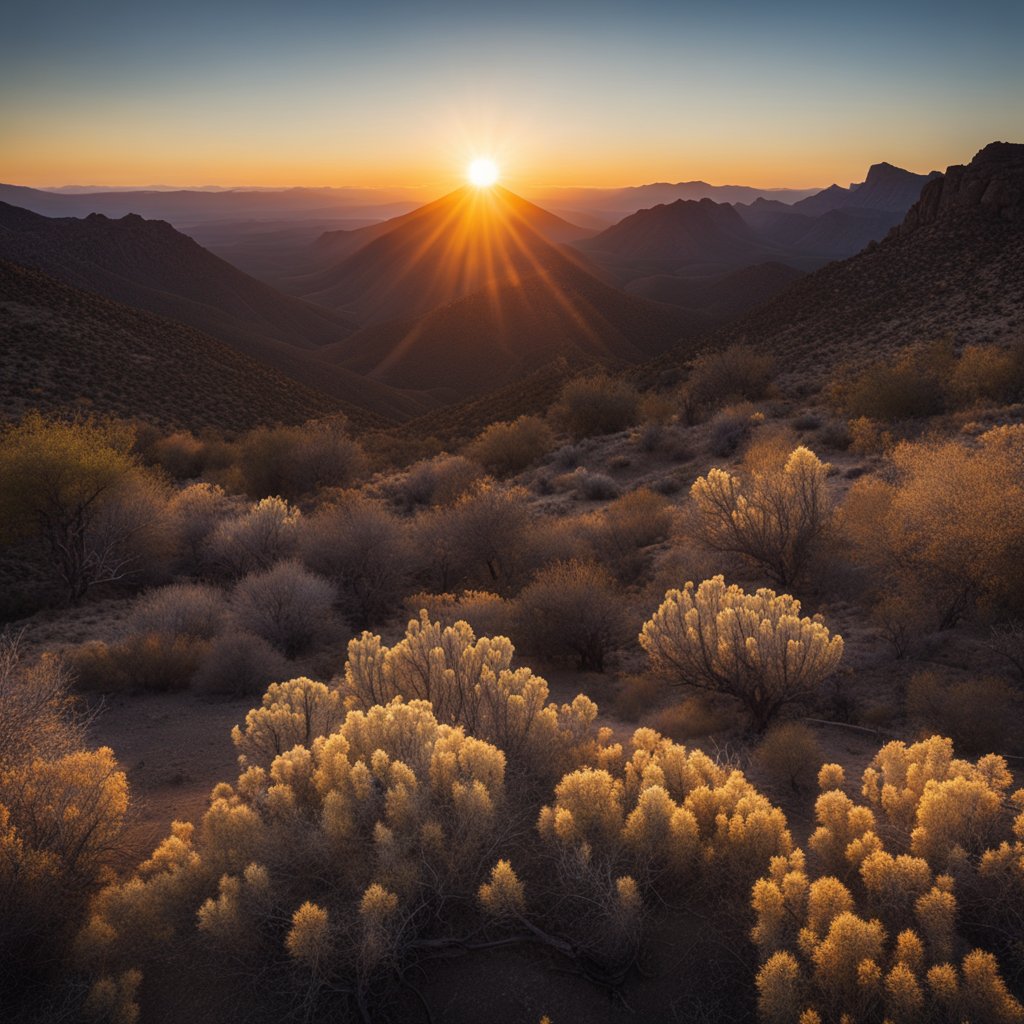
Have you ever wished upon a star from the tranquil shores of a serene lake?
Great Basin National Park in Nevada transforms that dream into reality.
Why is this place special?
It's got some of the darkest night skies in the country!
Imagine witnessing over 6,000 stars dotting the heavens above you—it’s a stargazer’s paradise.
- Elevation: The park's high elevation means clearer views of celestial wonders.
- Dark Sky Designation: Awarded in 2016, ensuring minimal light pollution.
- Annual Astronomy Festival: Held from September 5-7, making it a must-visit for any skywatching enthusiast.
Going lakeside at Great Basin offers a unique combination: calm waters reflecting the skies and unobstructed views of the cosmos.
It's not every day you get to enjoy such an experience, right?
But the park isn't just about the annual festival.
Year-round, you can enjoy ranger programs and telescope viewing, thanks to a partnership with the Nevada Northern Railway Company since 2013.
Take the Great Basin Star Train from Ely, NV, for a guided astronomy session that you won’t forget.
Isn’t it the perfect blend of adventure and astronomy?
- Location: A short journey from Ely, NV.
- Features: Interactive ranger-led programs and art projects.
- Views: Stellar visibility almost anywhere in the park.
Whether you're a seasoned astronomer or just someone who loves the beauty of a starry sky, Great Basin National Park welcomes you with open arms and open skies.
Ready to explore the universe from the comfort of a lakeside vista?
Don’t forget your telescope and your sense of wonder!
Glacier National Park, Montana
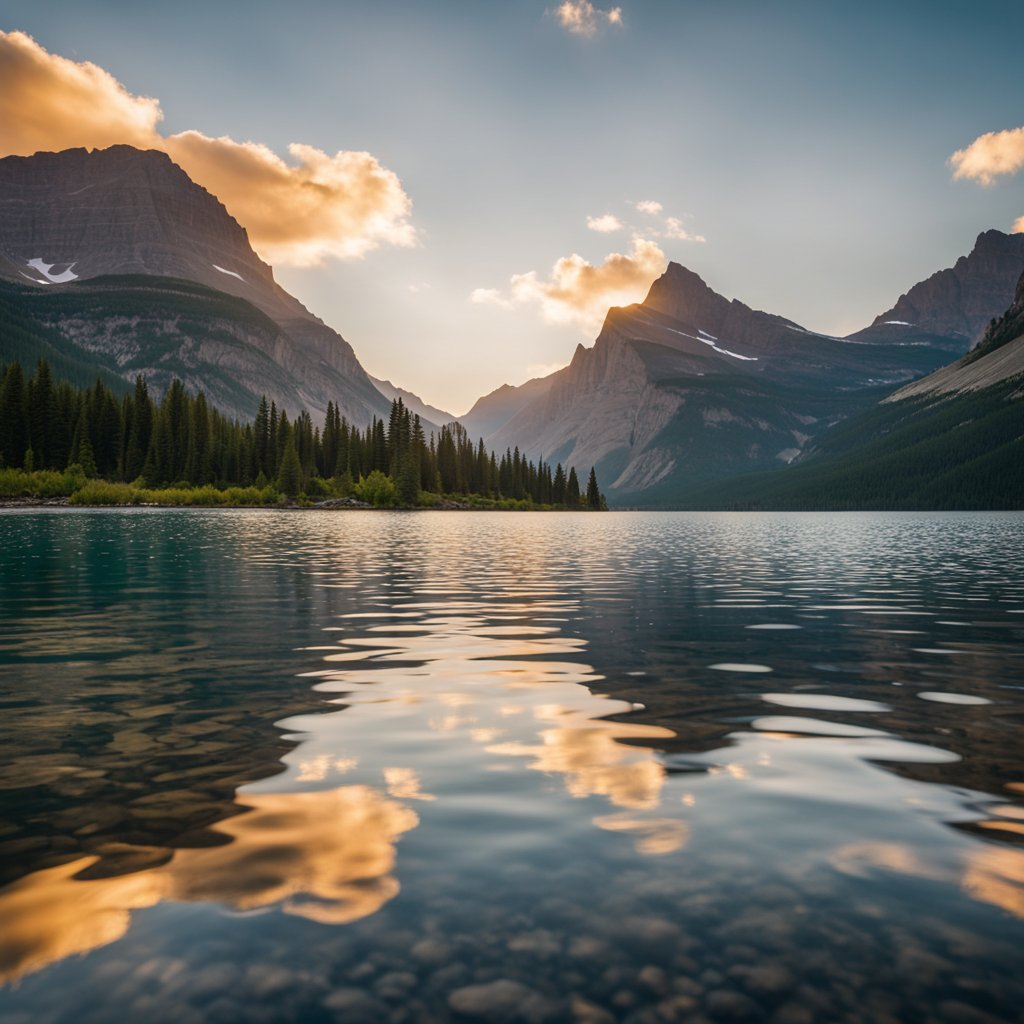
Have you ever wanted to capture the galaxy with your own eyes?
Picture this: you, a cozy blanket, and the infinite spread of stars overhead.
Well, you're in luck!
Glacier National Park in Montana is your ticket to an out-of-this-world stargazing experience.
Lake McDonald: the heart and soul of the park for night sky enthusiasts.
Its vast expanse mirrors the sky, doubling the beauty.
With minimal light pollution and high elevation, constellations and meteor showers are a common sight here.
- Stargazing Programs: Join the rangers for a cosmic adventure. The park collaborates with astronomy clubs for events, telescopic explorations, and star parties—be sure to check the calendar for dates like July 26, August 9, and September 6 of 2024.
- Apgar Lookout: Fancy a hike with your stars? This lookout is a 7.1-mile trek from the southwestern corner. Aim for the top or find a peaceful spot along the way to gaze upwards.
- Partner Organisations: These stargazing sessions are a team effort. The NPS Night Sky Program and the Big Sky Astronomy Club are two names involved in bringing you face to face with celestial wonders.
Remember to pack your telescope or binoculars.
The rangers often provide scopes, but having your own means you're set to explore the cosmos whenever the mood strikes.
Bring warm clothing – layers are your friends under the chilly, starlit sky.
Ready for a night to remember?
Glacier National Park is waiting to show you the universe through a clearer, wider lens.
Keep an eye on the official website for event tickets and prepare for a stargazing adventure that's nothing short of stellar!
Death Valley National Park, California/Nevada
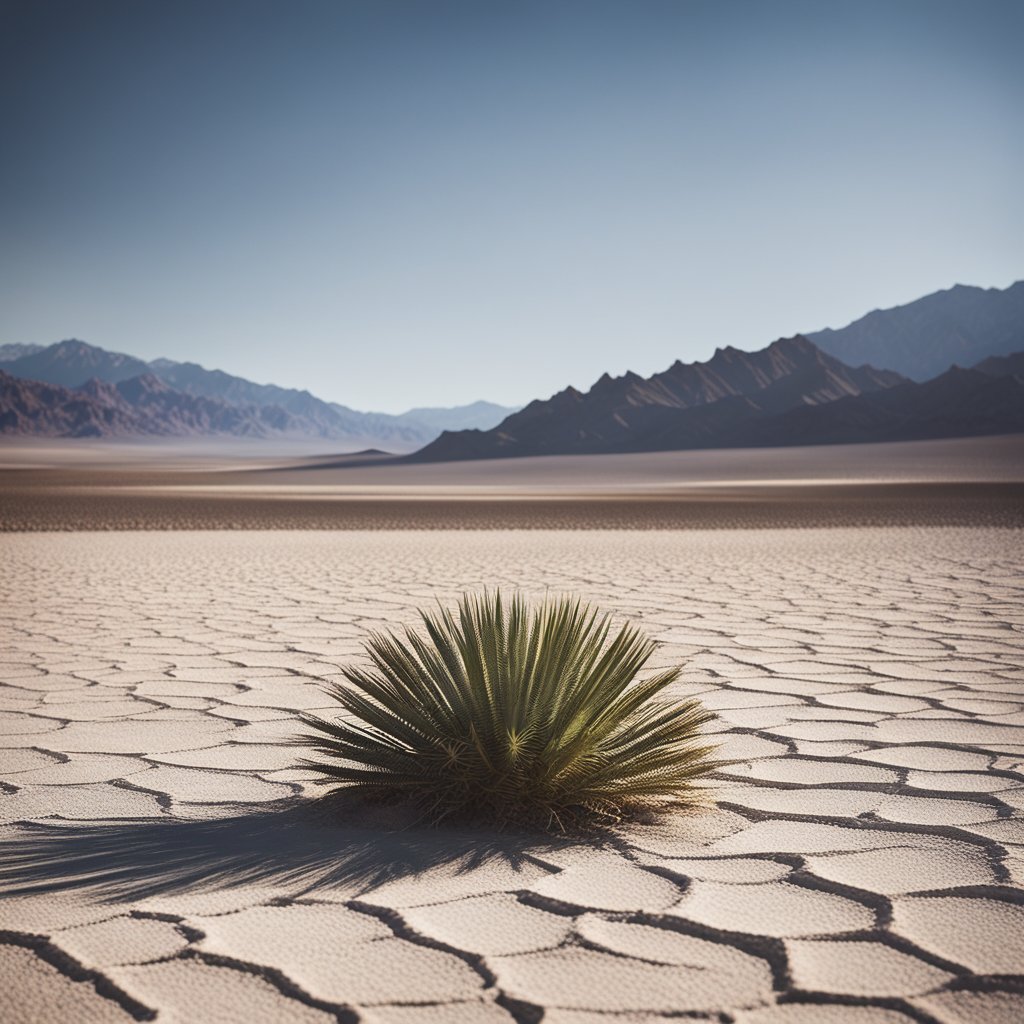
Have you ever looked up at the sky and wished for less light and more stars?
Welcome to Death Valley National Park, where the stars are so vivid it's like a galactic performance just for you.
Imagine standing beside a serene lake or a vast salt flat, looking up to a sky glittering with stars.
Pretty awesome, right?
Here's what makes Death Valley a stargazer's paradise:
- Gold Tier Dark Sky: It's not just dark; it's certified Gold Tier by the International Dark-Sky Association.
- Dry Climate: With minimal moisture in the air, the stars aren't just stars; they're celestial diamonds twinkling against the velvet sky.
- Scenic Backdrops: What could be cooler than silhouettes of towering dunes and rugged mountains against the cosmos?
Now, let's talk getting there:
- From Los Angeles: Zip along Interstate 15, catch Highway 127, then a left on 178 or 190 west, and you're in!
- From Las Vegas: Take the scenic route via Pahrump and CA Highway 190 for some pre-stargazing vistas.
What to do once you're under those Death Valley stars?
Count shooting stars, hunt for constellations, or capture the Milky Way with your camera.
And remember, winter and spring bring special dark sky events—don't miss out!
Just think, in a place named Death Valley, you'll find a sky so alive, it'll take your breath away.
Are you ready to be starstruck?
Voyageurs National Park, Minnesota
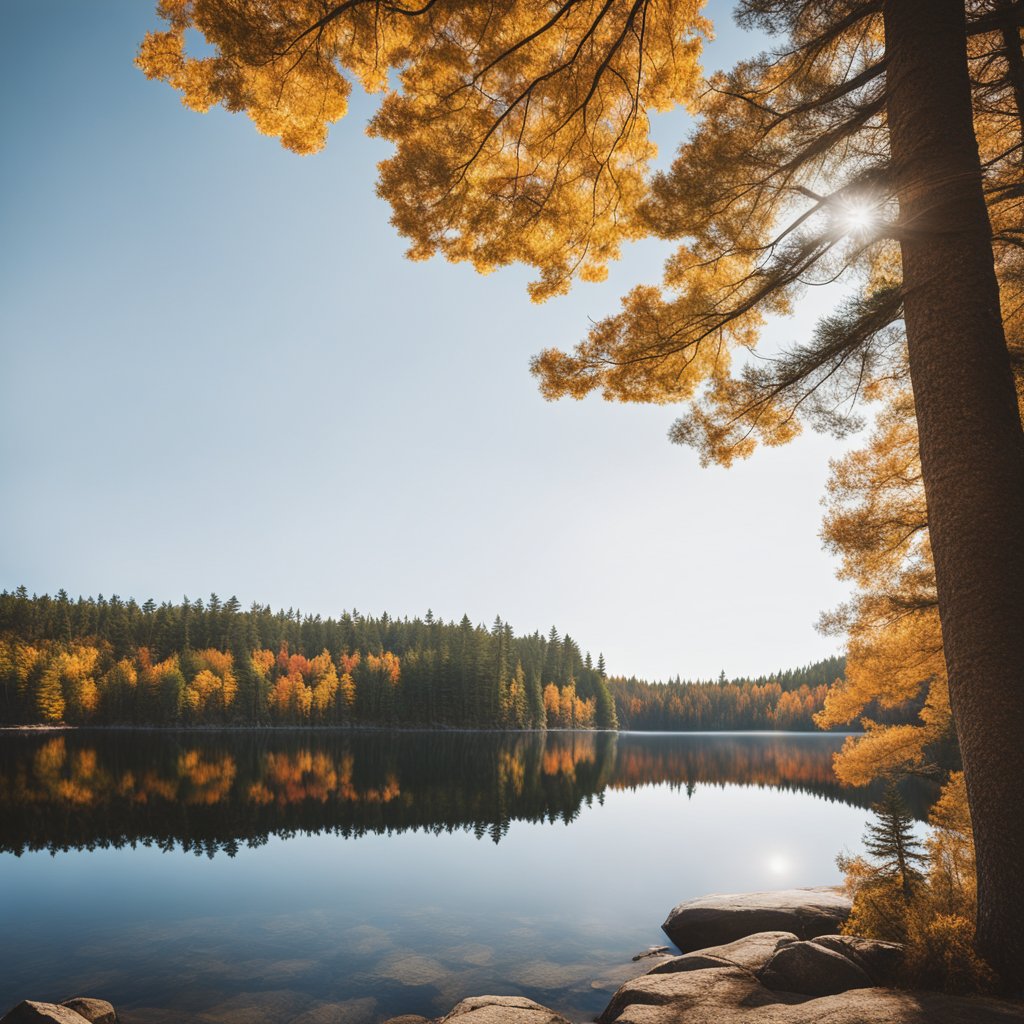
Have you ever gazed upon the night sky and felt the vastness of space?
At Voyageurs National Park in Minnesota, the stars aren't just bright; they're a celestial spectacle!
Tucked away from city lights, Voyageurs is your secluded haven for astronomy and those elusive Northern Lights.
Curious about what makes this place special?
Well, it's one of the few locales in the U.S. that offers such crisp, clear views of our galaxy.
Here's the lowdown:
- Sky Clarity: Thanks to minimal light pollution, the stars truly pop out at night.
- Northern Lights: You might catch the Aurora Borealis painting the sky in vibrant hues if you time it right.
- Visitor Centers: For instance, the Crane Lake Visitor Center is a prime spot for stargazing.
Did you know that your chances of seeing a shooting star at Voyageurs are exceptionally high on a clear night?
And if you're a fan of celestial events, bring a blanket, sit by the lakeshore, and watch the cosmic show unfold.
Here’s what you need to experience:
- Satellites & Planets: Keep an eye out for these as they make their nightly journey across the sky.
- Availability: Stargazing opportunities abound throughout the year.
- Accessibility: Easily reach the park via Highway 11 East to the park headquarters.
So, grab your binoculars, or just rely on the naked eye, because Voyageurs National Park is your stellar ticket to the wonders of the universe.
Don't miss out on this incredible adventure where the Milky Way is not just a candy bar, but a twinkling band stretching wide across the Minnesotan night sky!
Lake Powell, Arizona/Utah
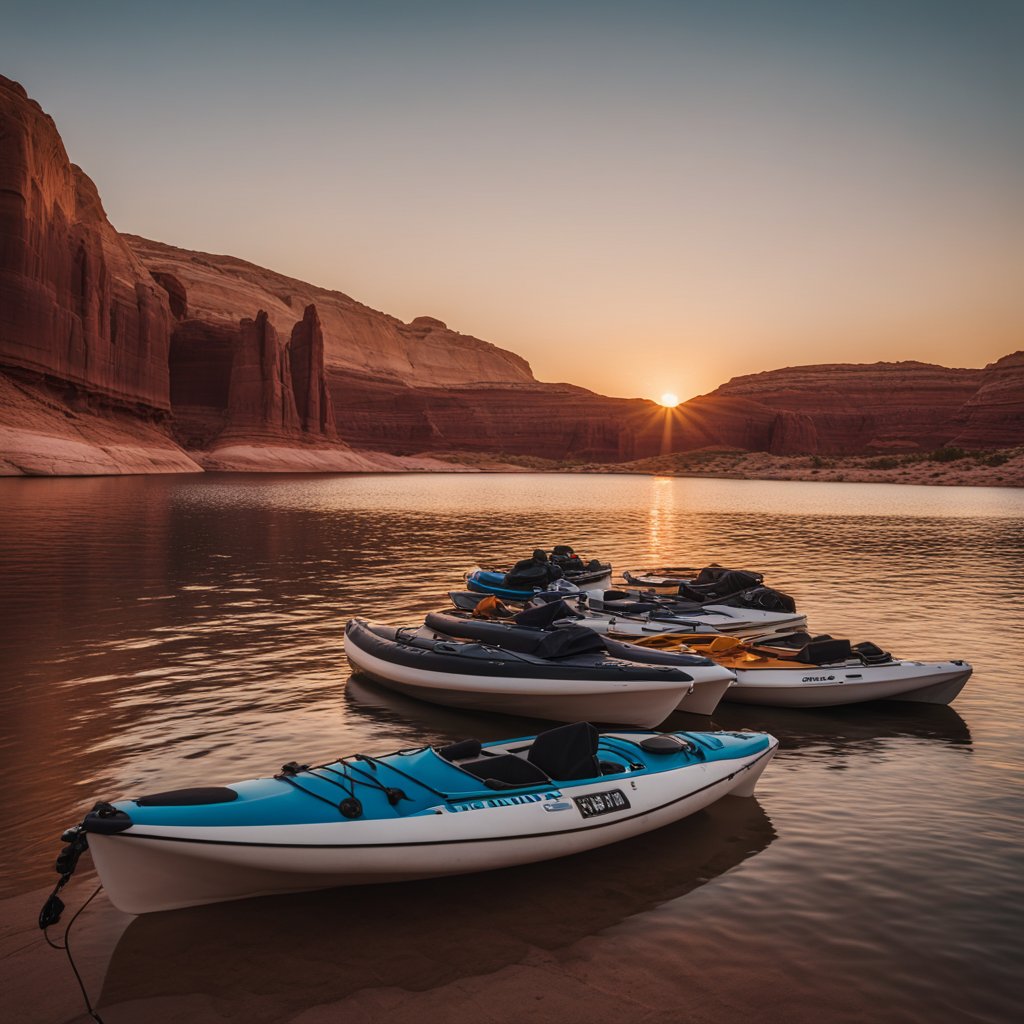
Ever dreamed of counting stars in the thousands while being cradled by a vast, serene lake?
Well, Lake Powell is your starry answer!
Imagine this: red rocks by day turning into a grand celestial canvas by night—sounds tempting, doesn't it?
Visiting Lake Powell, you'll be dazzled by up to 15,000 stars twinkling overhead on a clear night.
Fancy catching a meteor shower?
This lakeside gem is the stage for nature's very own fireworks display, minus the noise but full of awe.
Here's what makes Lake Powell a top-notch stargazing spot:
- Dark Skies: Far from city lights, you get that pristine night sky.
- Iconic Landscapes: Lone Rock and the surrounding canyons offer a stunning backdrop for night photography.
- Accessibility: It's easy to reach with a drive to 100 Lakeshore Drive, Page, AZ, 86040.
Don't just gaze; navigate the cosmos with the naked eye or a trusty telescope.
And if you're up for a bit of adventure during the day, check this out:
- Rainbow Bridge: A natural arch worth the boat ride from Bullfrog Marina.
- Rock Creek Bay: Perhaps add a splash with a rope swing before night falls?
Remember, Lake Powell straddles both Arizona and Utah, and each vista offers a unique stargazing experience.
So, grab a blanket, maybe a loved one, and prepare to be enchanted by the night skies at Lake Powell.
Who needs a planetarium when you've got the real deal right here?
Canyonlands National Park, Utah
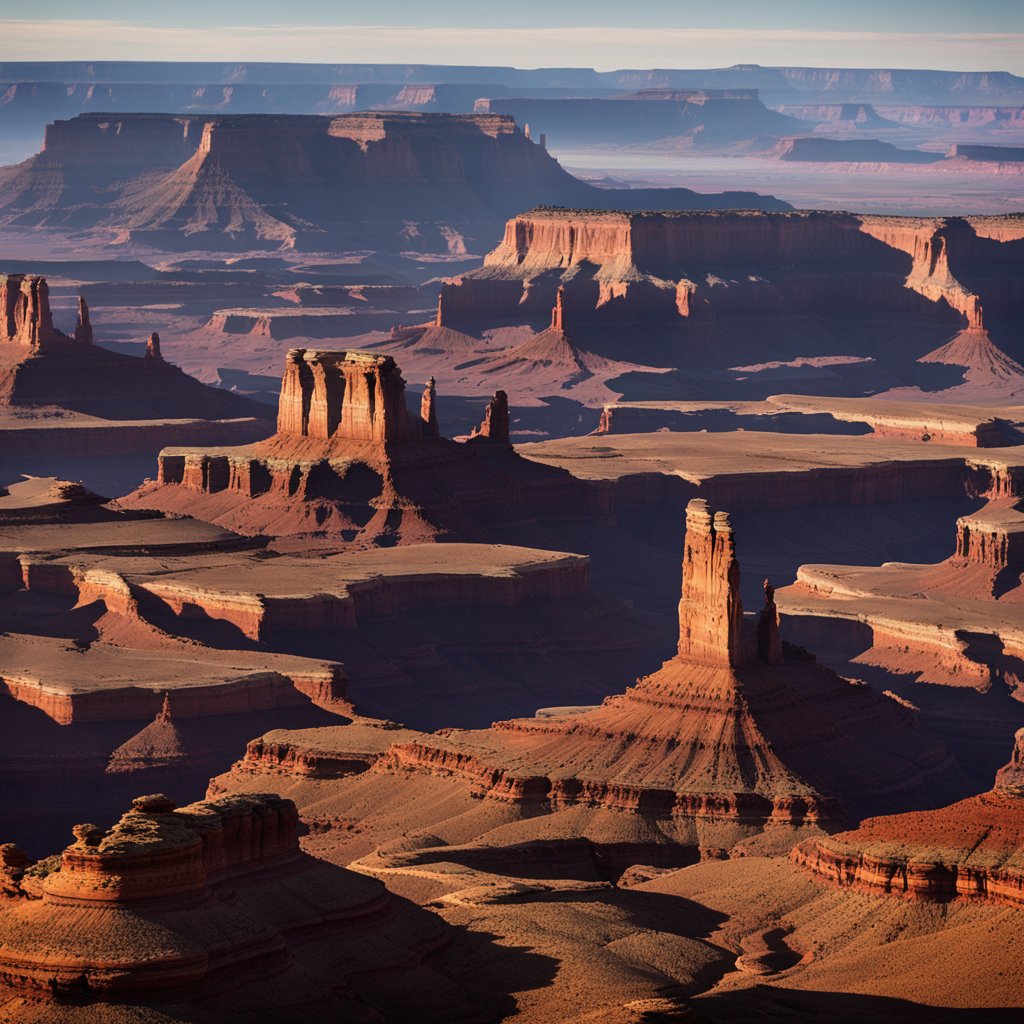
Ever dreamed of an epic backdrop for your night under the stars?
Let me tell you, Canyonlands National Park in Utah is your dreamy stargazing haven come true.
Fancy the darkest skies in the US?
Check.
Spectacular landscapes paired with tranquil lakes?
You got it.
- Location: Southeastern Utah
- Size: Approximately 330,000 acres
- Designation: International Dark Sky Park since 2015
Now, imagine sprawling canyons and towering buttes.
As night falls, the sky comes alive with sparkling stars, visible planets, and a sweep of the Milky Way.
Why so phenomenal?
Well, Canyonlands keeps light pollution at an absolute minimum.
That means pristine, pitch-black skies just for you — perfect for astrophotography or that romantic night out.
So, how do you maximize your celestial treat?
Here's the lowdown:
- Find a high viewpoint or a wide-open area. Less interference equals more stars.
- Give your eyes around 20-30 minutes to get used to the dark. Patience is key.
- Plan enough time away from bright lights. The dark-adapted eyes see best!
And if you're lucky, alongside constellations, you might even catch a few shooting stars!
Just you, the universe, and maybe a couple of fellow astronomy enthusiasts.
Sounds awesome, doesn't it?
Remember, Canyonlands isn't just another dot on the map; it's a whole experience.
With its vast terrain and certified dark skies, it's a clear favorite for anyone looking to trade city glow for star glow.
So pack your telescope, grab a comfy blanket, and make some memories under the celestial canvas.
You won't regret it!
Trillium Lake, Oregon
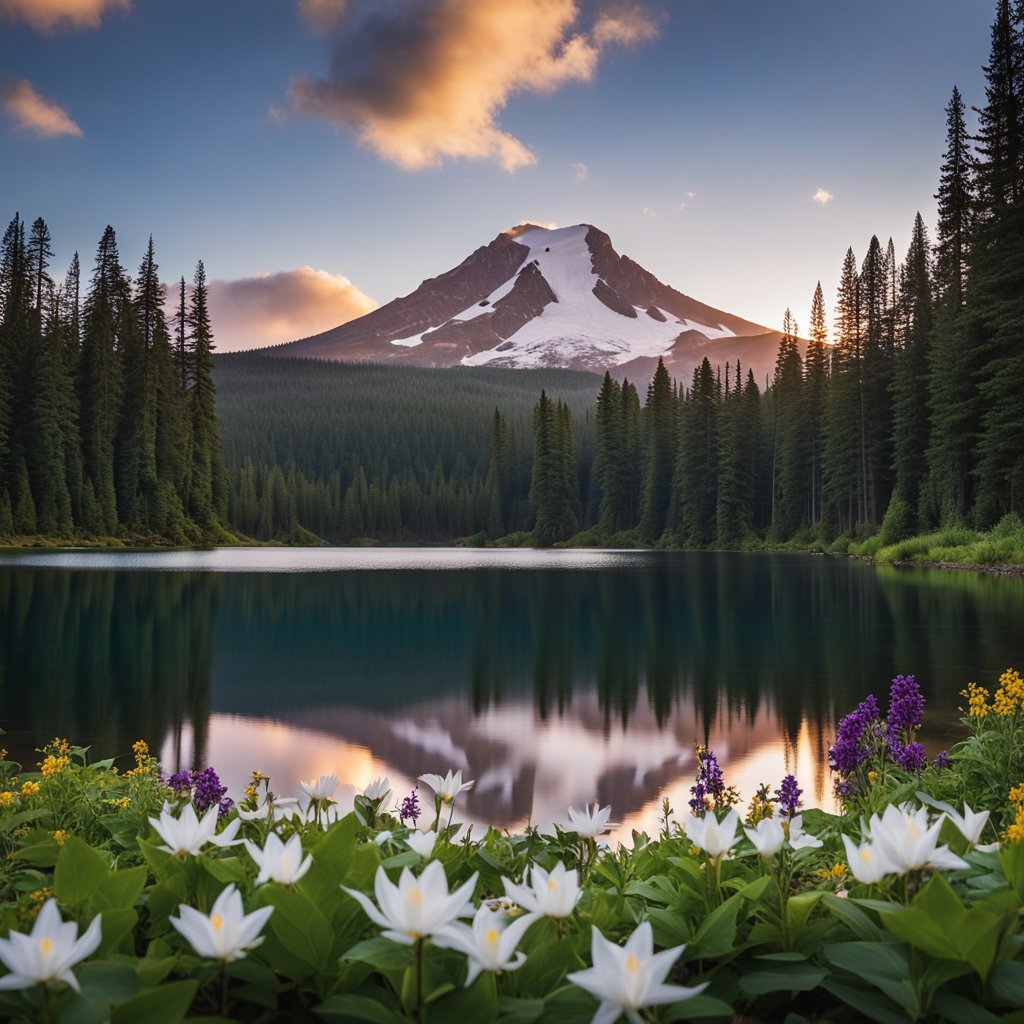
Have you ever gazed upon a mirror-like lake, reflecting the night sky as if it were guarding the secret doorway to outer space?
Trillium Lake is just that—an astronomer's dream right in the lap of Oregon, cradled by the majestic Mount Hood.
Isn't it thrilling to think you can witness the cosmos' dance with such clarity?
Location & Accessibility
- Address: Trillium Lake, OR 97028
- Accessibility: It’s accessible from Portland, being only 40 miles away.
Wrap up warm and set up your telescope—or hey, use just your eyes—and watch the stars play peek-a-boo.
Due to the minimal light pollution, this spot brings the Milky Way almost within reach.
Asterisms will be unmistakably visible, and shooting stars will zip through the clear sky, offering wishes to those quick enough to catch them.
Activities & Amenities
- Recreation: Hiking, fishing, biking, swimming
- Facilities: Campground available
- Best Time to Visit: Summer months for camping
Imagine the soft lap of lake waters, the scent of pine in the air, and the panoramic display of celestial wonders above—this is what stargazing at Trillium Lake offers.
At 3600 feet above sea level, the perspective is truly sky-high.
Have your camera ready; the reflections on the lake paint a double image of the heavens—a perfect celestial symphony.
Remember, this isn't just a nighttime treasure; by day, Trillium Lake is bustling with activities.
You can hike, fish, bike, or swim.
Then, as the sun dips and the twilight curtain rises, switch gears to tranquility and the night's silent majesty.
Isn't it wonderful to have the best of both worlds, as the daylight fun perfectly transitions into a stellar night show?
So, grab your star maps and lake-friendly gear, and make your way to Trillium Lake.
Whether you’re an experienced stargazer or a novice to the wonders of the night sky, this lake is a glorious spot to connect with the cosmos.
How often do you get the chance to witness a sky so alive?


